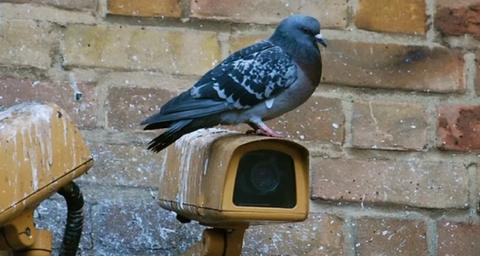More and More Birds Are Showing Up in Cities
Some birds used to stick to the coasts, but now they've made their way to cities, towns, and garbage dumps. They changed their diets and now like to find leftover food instead of hunting for fish or mice. Pigeons have also changed the way they eat, switching from seeds and fruit to digging through our trash.
Which Diseases Can Be Transmitted by Birds?
Unveiling the Top Diseases Hitchhiking from Birds to Humans!
- Histoplasmosis: This fungal infection, caused by Histoplasma capsulatum, is found in bird droppings, especially in large quantities. When these droppings dry up, the fungus releases spores into the air. Inhaling these spores can lead to respiratory infections in humans, with symptoms ranging from mild to severe.
- Cryptococcus: This fungus is commonly present in bird droppings, and inhaling its spores can result in cryptococcosis. This respiratory infection can be particularly serious for individuals with weakened immune systems, causing symptoms like coughing, chest pain, and fever.
- Psittacosis: Caused by the bacterium Chlamydia psittaci, psittacosis is transmitted to humans through exposure to infected bird droppings, respiratory secretions, or feathers. Its symptoms can mimic pneumonia or a flu-like illness, including fever, headache, and difficulty breathing.
- Salmonellosis: Pigeons can carry Salmonella bacteria in their digestive systems. Human infection can occur through contact with contaminated bird droppings or surfaces. Salmonellosis manifests with symptoms such as diarrhea, fever, and abdominal cramps.
- E. coli and Campylobacteriosis: These bacterial infections are transmitted to humans through contact with bird droppings, emphasizing the importance of maintaining proper hygiene. E. coli and Campylobacteriosis can cause gastrointestinal issues, including diarrhea and abdominal pain.
Understanding these diseases highlights the importance of taking precautions when in close contact with birds to minimize the risk of transmission and protect human health.
Dangers to Health from Birds
Some individuals may experience allergies to proteins in pigeon feathers, droppings, or dead skin, leading to respiratory problems, skin rashes, or eye irritation upon exposure to these allergens.
In addition, accumulated pigeon droppings pose a slippery threat, elevating the risk of slip and fall accidents. This danger is especially prominent in areas buzzing with bird activity, urging a closer look at the hidden health concerns linked to bird infestations.
Keeping Birds at Bay: Simple Tips to Prevent Damage
When it comes to keeping birds from causing problems, you have a few tricks up your sleeve. Consider using bird deterrents like spikes, netting, or wires, creating physical barriers that make it tough for birds to land or access certain spots.
If you want to go the scare route, get creative! Hang up reflective items like old CDs or strips of aluminum foil, set up friendly scarecrows, or use gadgets that make distress calls or mimic predator sounds.
Exploring these simple tips can help you safeguard your space and keep it bird-free. For more insights on preventing bird damage, dive into additional tips and tricks.
